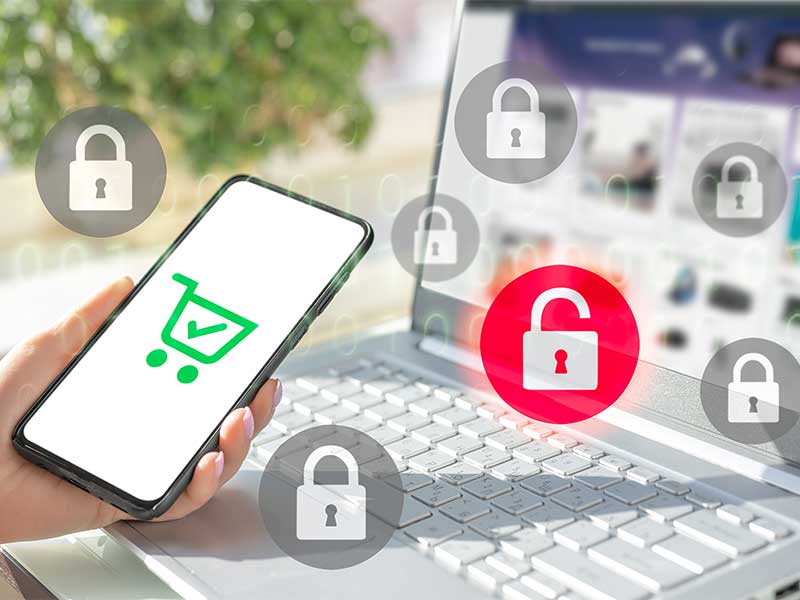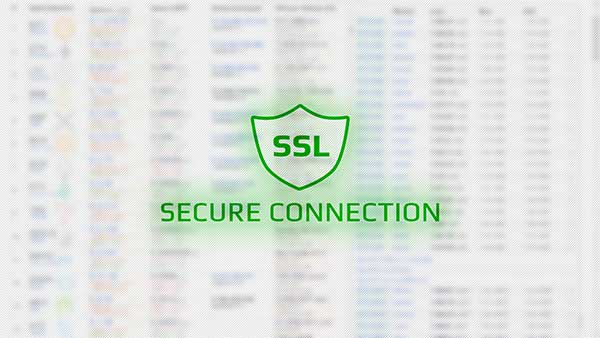
Keeping your eCommerce website secure is paramount in today’s digital landscape. In this article, we will explore effective strategies and best practices on how to improve the security of your eCommerce website, empowering you to mitigate potential vulnerabilities. With the increasing prevalence of online threats, it’s essential to take proactive steps to safeguard your business and your customers’ sensitive information. Implementing robust security measures can instill trust, protect against cyber attacks, and provide a safe online shopping experience.
An eCommerce website, also known as an online store, is a digital platform that allows businesses to sell products or services over the Internet. It provides customers with a convenient and accessible way to browse, select, and purchase items from the comfort of their own homes. Improving the security of your eCommerce website is crucial to safeguard your business reputation and protect your customers’ sensitive information. By implementing reliable security measures, you can create a secure online environment that instills trust and confidence in your customers.

Implement SSL/TLS encryption, keep software up to date, enforce strong password policies, and enable two-factor authentication. Implement a web application firewall, educate staff and customers on security best practices, and stay updated on emerging threats. By following these security practices, you can significantly improve the security of your eCommerce website and minimize the risk of security breaches or unauthorized access. Continuously stay updated on emerging security threats and technologies to ensure that your website remains protected over time.
Safety First: Ensuring Top-Notch Security for Your eCommerce Website
- Utilize SSL/TLS Encryption:

One of the essential steps in securing your eCommerce website is implementing SSL/TLS encryption. This encryption technology encrypts the communication between your website and users’ browsers, making it challenging for hackers to intercept and decipher information. When SSL/TLS is enabled, users will see a padlock symbol next to your website URL, indicating a secure connection. Obtaining an SSL certificate and configuring it correctly is crucial for protecting sensitive customer data, such as login credentials and payment information.

2. Keep Software Up to Date:

Keeping all software components of your eCommerce website up to date is vital for maintaining security. This covers the plugins, themes, and content management system (CMS) you use. Developers regularly release updates that address security vulnerabilities and patch any loopholes that hackers could exploit. Failing to keep your software updated increases the risk of potential breaches. Enable automatic updates whenever possible, and regularly check for updates manually to stay proactive in fortifying your website’s security.
3. Implement Strong Password Policies:

Passwords are often the weakest link in online security. Enforce strong password policies for user accounts on your eCommerce website to enhance security. Encourage users to create complex passwords that include a combination of uppercase and lowercase letters, numbers, and special characters. Consider implementing password complexity requirements during the account creation process. Partnering with an experienced and reliable web development company in India can help you build a robust and secure website from the ground up.
4. Enable Two-Factor Authentication (2FA):

Two-factor authentication (2FA) adds an extra layer of security to user accounts by requiring additional verification beyond just a password. This authentication method requires users to provide a second form of identity verification, such as a unique code sent to their mobile device. By enabling 2FA, a hacker will still require the second factor to get access even if they can obtain the user’s password. Implementing 2FA significantly increases the difficulty for unauthorized individuals to breach user accounts on your eCommerce website.

5. Conduct Regular Security Audits:

Regular security audits and vulnerability assessments are crucial for identifying and addressing potential weaknesses in your eCommerce website’s security. Conduct these audits either by hiring security professionals or utilizing automated scanning tools. These audits help detect vulnerabilities, gaps in security configurations, and potential threats. By performing regular security audits, you can proactively address security issues and implement necessary fixes to keep your website and customer data secure.
Visit: Shopify vs Magento
6. Choose a Reliable Payment Gateway:

Selecting a reliable and secure payment gateway is paramount to protecting your customers’ payment information. Ensure the payment gateway adheres to industry security standards, such as the Payment Card Industry Data Security Standard (PCI DSS). PCI DSS compliance guarantees that the payment gateway has implemented robust security measures to safeguard sensitive customer data during payment processing. Choosing a reputable and trusted payment gateway will not only protect your customers but also enhance their trust in your eCommerce website.
7. Implement a Web Application Firewall (WAF):

Utilizing a Web Application Firewall (WAF) is an effective way to protect your eCommerce website from various cyber threats. A WAF acts as a filter between your website and incoming traffic, identifying and blocking suspicious activities and known attack patterns. By collaborating with a web design company in India, you can ensure that the design of your website incorporates necessary security measures to protect your customers’ data. It helps prevent common web-based attacks, such as cross-site scripting (XSS) and SQL injection attacks. Implementing a WAF provides a layer of protection to your website, enhancing its robustness against potential vulnerabilities.
Conclusion
Enhancing the security of your eCommerce website is crucial to protect your business and customers. Prioritizing security not only safeguards your customers’ sensitive data but also builds trust and loyalty, ultimately contributing to the success of your eCommerce business. Remember, continuous monitoring and staying up-to-date with the latest security practices will enable you to identify and mitigate potential vulnerabilities, ensuring the safety of your customers’ data and ultimately, the success of your eCommerce business.
Visit: how remarketing helps in growing sales
ensuring the security of your eCommerce website is vital for protecting your customers’ sensitive information and maintaining their trust. By following these guidelines on how to improve the security of your eCommerce website, you can significantly enhance the security posture of your website.
Why Adzmode?
- More than 800 happy clients across the globe
- Managing Digital Marketing Since 2011
- Indomitable Digital Marketing Strategies
- Founded by team of IIT Delhi Certified Digital Marketers
- 100% Transparency in Operations and Ad Budgets.
Share Your Project Requirements With Us






